1. Technology results in the loss of privacy and security by
1.1. Casuing private information to be accessible by almost anyone
1.1.1. Strangers would know about your daily activities and personal information that will make users vulnerable to cyber attacks or hacks.
1.1.2. Eg. Facebook encourage the sharing of private information on personal profile. In the past default setting creates maximum exposure of the user's information onto the social website.
1.2. Causing private information to be able to be stolen by someone
1.2.1. Spywares are created to steal private infromation from people, while computers can also be hacked to retrieve important information
1.3. Our over reliance on technology to achieve security and privacy
1.3.1. Disabling the technology protecting our security and privacy, such as cutting the circuit that powers the technologies like survalliance cameras or a failure in the antivirus software will result in the security and privacy being compromised to a very large extent.
1.4. Providing criminals with better equipments for them to use
1.4.1. Lower the security, as criminals have better technologies to hack into survillance cameras and prevent themselves from being seen within the restricted compound, as well as copying someone's fingerprint or facial feature
2. Security and privacy cannot be treated as two separate issues as both are intrinsically linked to each other. Privacy is a result of security measures being implemented. It can range from simple things like a home, in which the concealment of one's home from the outside world is a security measure to protect one's privacy at home, to privacy that requires the sophistication of technology, such as an anti-virus programme to secures one's computer and personal information inside from being hacked and retrived by an external source. With respect to the question, the technology as a tool to enhance privacy and security in our country, or to weaken it will be assessed
3. Technology increases the protection of privacy and security by
3.1. Having advanced technology able to prevent and serve as deterence against threats
3.1.1. A strong and capable SAF, which is equipped with high technology military hardware and software, such as the Formidable-class stealth frigate and advanced data links and networks to coordinate attacks between different units, give Singapore an edge over neighbouring countries in terms of military might, thus, serving as deterrence against external threat
3.2. Protecting private information on one's own computer
3.2.1. Anti-virus and anti-spyware programmes like Norton 360 are designed to keep users safe from viruses and spywares to prevent the loss of their personal information to the hackers, or modifying the content of the user's personal information
3.3. Protecting private information over the internet
3.3.1. Newer web browsers that comes with anti-phishing software, to prevent people from giving out private information like their passwords and username, and identifying users if the website is authentic or not
3.4. Enhancing the measures to prevent people from entering certain restricted areas
3.4.1. Fingerprint or biometric identifications are now being used to only allow those permitted to enter a secured compound, such as a vault or a school, to enhance security measures as it is much harder to duplicate someone's fingerprint or facial features, protecting the privacy of the secured compound
3.5. Enhancing measures to ensure that the restricted area has not been breached by an intruder
3.5.1. Surveillance camera are placed to monitor and ensure the security of the area that is under surveillance, ranging from military camps to an office and even one's home. This security will enable the privacy of those in that area to be further protected as well
